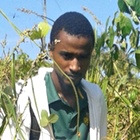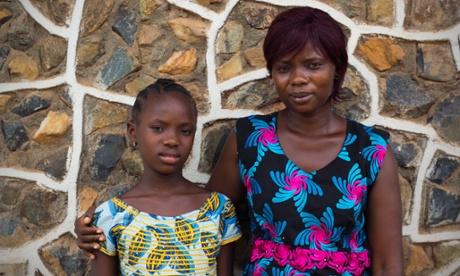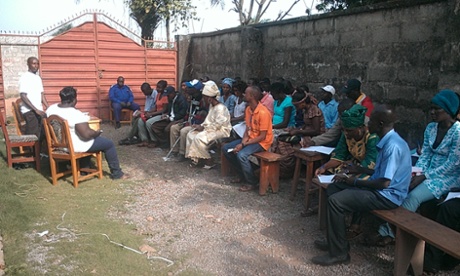The Ebola epidemic in Sierra Leone remains among the most devastating events in our country’s history, perhaps more dreadful even than the 11 years of civil war.
It has been more than a year now since we were first cleared of a sickness we had had little or no idea of – or readiness to tackle.
It was traumatic, and has had a huge impact on both the life and education of young people in Sierra Leone. Many were afflicted by sorrow and grief as they lost their loved ones to the disease. They suffered hunger, psychological trauma and isolation from friends and relatives.
Edward Koroma Jr, a third-year student at Njala University, told me: “Ebola brought our school activities to a standstill. This caused a major loss in the life of some students by waiting for a wasteful year – a gap never filled in their life. Some students became pregnant with unwanted babies, exposing them to a high risk of dropout, and now poverty is playing a role in the lives of many students. Ebola impoverished, traumatised and hindered the future of students in Sierra Leone and it will take years to recover.”Today we celebrate simply still being alive – and this has brought us closer to that one thing that has always been there with us from the beginning. As a people, God is the one we have always depended on when all is lost, and this has been true all across the country. We are survivors.
When you walk the streets of Sierra Leone these days you notice that some people have almost forgotten that we ever had an Ebola epidemic in which many lost their lives. Even as many of us are suffering silently, life has to go on. Trust is back with us – we are no longer afraid to engage in our traditional greetings. Life is better this way. Restrictions on family rituals for burials have been reduced, but the authorities request that they are informed. We feel love in spite of everything.
Yet our economy has gone from bad to worse. People say this is because Ebola put our nation on hold. Even with all the money we received from donors it seems the poor are getting poorer and the rich, richer. Life was hard before Ebola and is still so after it.
A restaurant owner I know has had to reduce her staff by 80% because of loss of business and the increased price of food. Jobs are only for the lucky ones.
In some respects, things are back to how they used to be. Schools have opened, movement restrictions have ended and the thought of Ebola is slowly fading from our minds. Many even forgot the first anniversary. But just as with the war, the after-effects are still visible. Discrimination against survivors has stopped. But those who lost their breadwinners are struggling to survive.
December is here again and, even with the hardship in our country, many are going to celebrate like never before. Freedom is great. With no restrictions this year we are going to visit loved ones, enjoying the little that we have – because you never know what’s coming next. Being able to move freely without catching a disease is worth a million dollars.
Ebola exposed our health systems for what they are. It showed the trust that was lacking between people and services, it showed how our health facilities were often merely buildings rather than places providing care. It showed broken relationships. During the Ebola outbreak, many of these centres were closed, leaving people without medical help. Most of them are now operating again, although many still lack proper equipment or improved resources, and the absence of trust persists. Those with options prefer private hospitals. There have been some changes and improvements after Ebola, but the question will always remain: how ready is our health system to fight another outbreak like this? Many things that need to be done are yet to be implemented.
As I sit writing, I look back on how far we have come as a people and I have come to realise that some things will never change. The scars still show. People are very angry. How long will we keep looking to donors, when better management could make a big difference? People should not be dying because local health facilities are not well-equipped to diagnose and treat illnesses that are curable.
Certain things need to change and until we, the people, make a stand, they will always be the same. Had it not been for international and local NGOs, I do not know how we would have won this fight against Ebola. But the battle continues until everyone has access to good healthcare.
We will never forget those who died in the line of duty. Our loved ones will never be forgotten – their dreams will never be lost, for it is a lesson we will pass to future generations. Worries are by no means over for those suffering the after-effects of treatment from Ebola because, in a country like Sierra Leone, long-term support is not in place. Yet the future is bright, because we, the young, are very ready to correct the issues that have put us where we are today. One thing for sure is that there is a God, and with him we have hope. We will keep fighting for that which is right. Peace.











